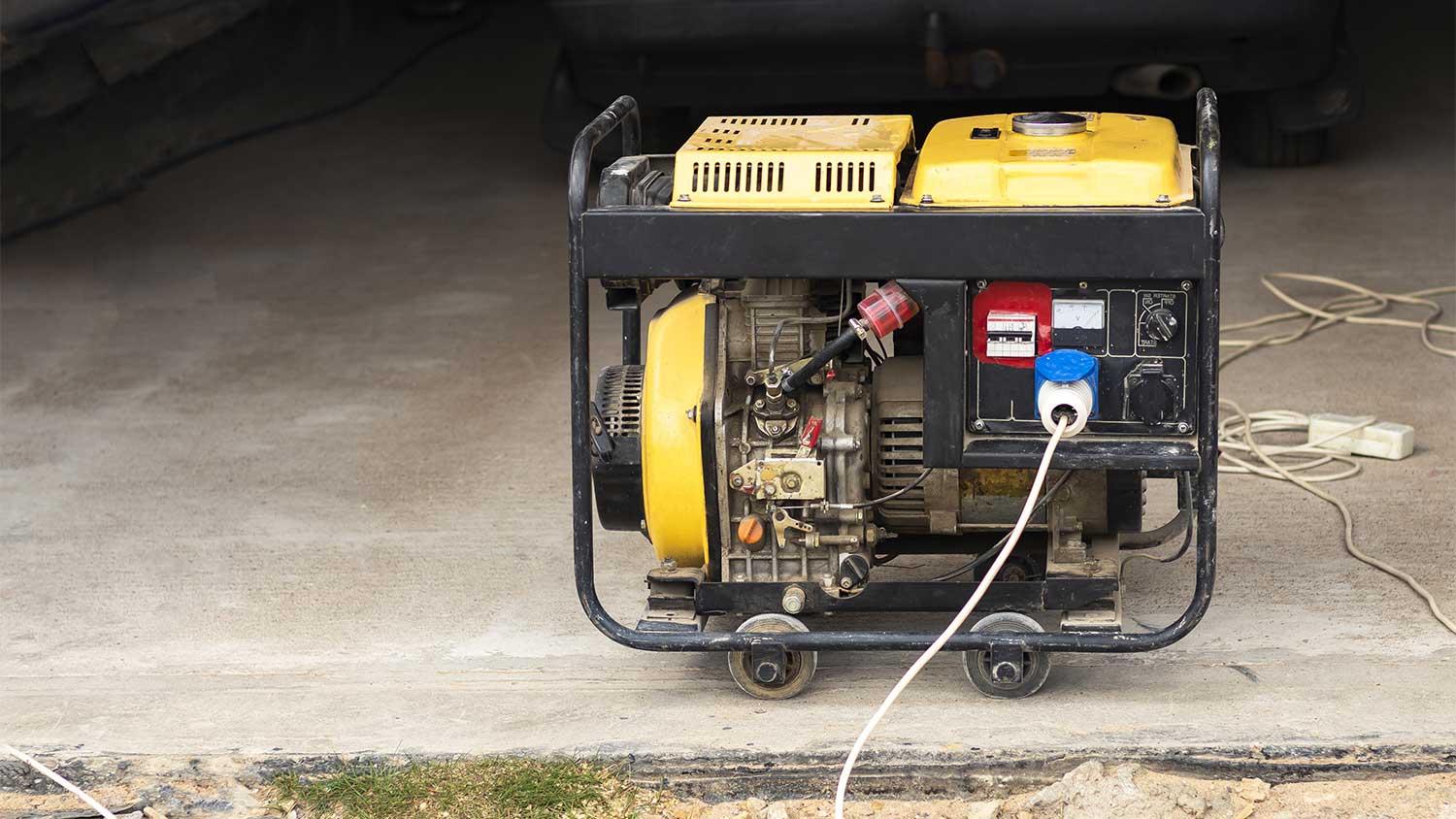Sump Pump Backup Options and What’s Right for You
The situation just went from dire to drier


Ready to get pumped up about choosing a sump pump backup? There’s something to be said about the peace of mind of knowing your basement will stay dry in even the most ferocious downpour. If you live in a flood zone or in an area with lots of rain, you probably need a sump pump and a backup to protect your home from water damage during storms and power outages. Here are the three most popular sump pump backup options.
1. Battery Backup for Your Sump Pump
A battery-operated backup sump pump is the most popular choice among homeowners because it's relatively easy to install on new and existing sump pumps, inexpensive, and simple to maintain.
With a battery backup, you're often just plugging in your backup without any need for hardwiring. The backup is designed to kick on automatically if your power or sump pump fails, which means you don't have to worry about sleeping through a power outage to wake up to a flooded basement. Battery backups also earn points for offering a substantial pumping volume, which is important if a power outage is due to a storm that's driving water toward your home's foundation.
The downside to a battery sump pump backup is that batteries don't last forever. Fully-charged batteries only last five to seven hours of continuous pumping and one to three days of non-continuous pumping. While that won't be a big issue during a short stint without power, you may be left in the lurch if your lights stay down for a while or if your sump pump is constantly running. A battery backup for your sump pump isn't considered a permanent fix—even a high-quality battery backup has a limited life span, which means you’ll have to cover the cost of battery backup about every five years.
| Pros | Cons |
|---|---|
| Easy installation | Limited power |
| Inexpensive | 5-year life span |
| Doesn’t need water | Requires cleaning |
Best for: Occasional power outages and temporary solutions
2. Water-Powered Sump Pump Backup

Unlike a battery backup that simply plugs into your pump, a water-powered sump pump backup is usually completely separate from your pump. Designed to run as long as you have a working water supply, these pumps use water pressure to power your sump pump. Water-powered pump backups mean that you don’t have to worry about power availability for running your sump pump over extended periods. They’re also meant to last for a long time, which means you can go up to 20 years without needing a replacement.
However, a water-powered backup can translate to higher sump pump costs since a local sump pump contractor is often required for more complex installation needs. You can also expect more expensive water bills since it relies on municipal water pressure. If that water pressure isn’t high enough, it may not have enough power to keep up with your sump pump’s demands. These setups also aren’t generally compatible with well systems.
| Pros | Cons |
|---|---|
| Unlimited run-time | Not well compatible |
| Minimal maintenance | Complex installation |
| Long life span | High water bills |
Best for: Major flooding and extended outages
3. Portable Backup Generator for Your Sump Pump

You're not necessarily stuck altering your sump pump to get backup support. Some homeowners opt to keep their sump pumps powered through outages using backup generators. A backup generator allows you to keep your sump pump running by supplying electricity to your home. The main perk of a backup generator for your sump pump is that there's no limit to how long you can run one.
While a generator can offer effective protection against water damage, it won’t kick in automatically the way other backups do. A backup generator requires a substantial cost investment compared to other backup options—generally between $500 and $2,000—but it can last up to 20 years if you maintain it properly.
| Pros | Cons |
|---|---|
| Long run-time | High up-front cost |
| Powers other things | High running costs |
| Minimal installation | No automatic startup |
Best for: Versatile use during both short and extended power outages
Bonus Tip: Consider a Smart Sump Pump System
A reliable water alarm should accompany any sump pump backup option that you choose. Water alarms aren't just important for storms, though—they can also alert you of constant water flow from a sump pump caused by a damaged or failing pump.
You can also consider a smart sump pump system that incorporates an alarm with an automatic switch that activates your backup in the case of a power failure. Local sump pump specialists can discuss various available options with you.















